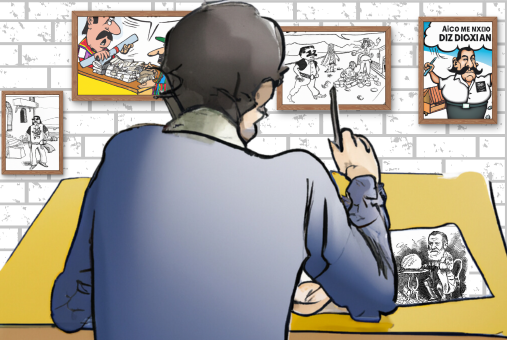
Mexican cartoonists use humor and satire to mock narco culture and organized crime in Mexico through comic strips and political cartoons, while making visible the tragedy and surrealism of drug trafficking and criticizing the inefficiency of authorities to combat it.
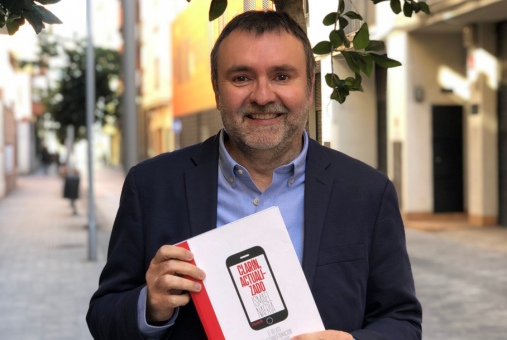
In a new book, Spanish researcher Ismael Nafría describes how Argentine daily Clarín reached more than 500,000 digital subscribers in less than six years. The study is full of practical tips for communication professionals. We present some of them here.

Journalists selected for the first Spanish edition of the JournalismAI Academy for Small Newsrooms will seek to learn how to take advantage of artificial intelligence to optimize processes, reduce workload, improve audience engagement and strengthen sustainability. Media from 15 Latin American countries will be represented in the eight-week program.
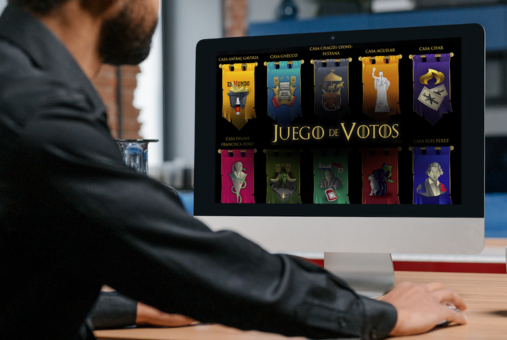
With interactive games, independent media outlets Cuestión Pública and Convoca, from Colombia and Peru, respectively, seek to bring the news to younger audiences, to contribute to greater media literacy and to present complex investigations in a playful way.

In contrast to the bureaucratic difficulties of accessing information in Mexico, the U.S. judicial system offers rich sources of information for investigating cases of Mexican criminals tried in that country, said journalist Juan Alberto Vázquez. His book "Los Padrotes de Tlaxcala" reveals shocking details about how Mexican trafficking networks operate in New York.
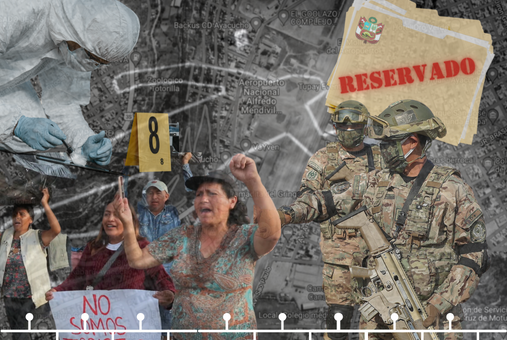
With a video investigation based on open-source forensic reconstruction, two journalists from Peruvian news outlet IDL-Reporteros challenged the government’s lack of transparency and uncovered the truth about a violent repression incident in the city of Ayacucho that left 10 dead. The work was awarded the 2023 Gabo Prize in the Image category.

Faced with the disinformation created by images generated with artificial intelligence, a project led by Adobe seeks to implement a technological standard that provides data on the origin and alterations of digital content on the Internet. Although it is in its early stages, more than 50 news outlets and fact-checkers in Latin America have already joined as members.

Disinformation narratives that seek to delay actions against climate change, a communication initiative to train communities on digital security, and protection tips for journalists covering the Amazon were lessons learned at the II Amazon Summit on Journalism and Climate Change, organized by Fundamedios, in Ecuador.
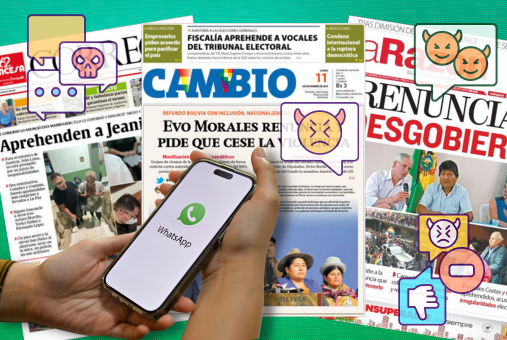
A project of Bolivia Verifica (Bolivia), with mentoring and support from Proyecto Desconfío (Argentina), seeks to promote dialogue, reflection and a culture of peace among Bolivian society by monitoring and verifying hate speech posts on social media aimed at vulnerable groups, and by distributing verified content through WhatsApp.

Representatives of Radio Ambulante, Dementes, Revista Late, Dudas Media, and Convoy Network spoke at the Estación Podcast festival about aspects of sound content creation in Latin America. These include financing methods, the value of catering to a defined audience and the importance of protecting the intellectual property of productions in the face of streaming platforms.
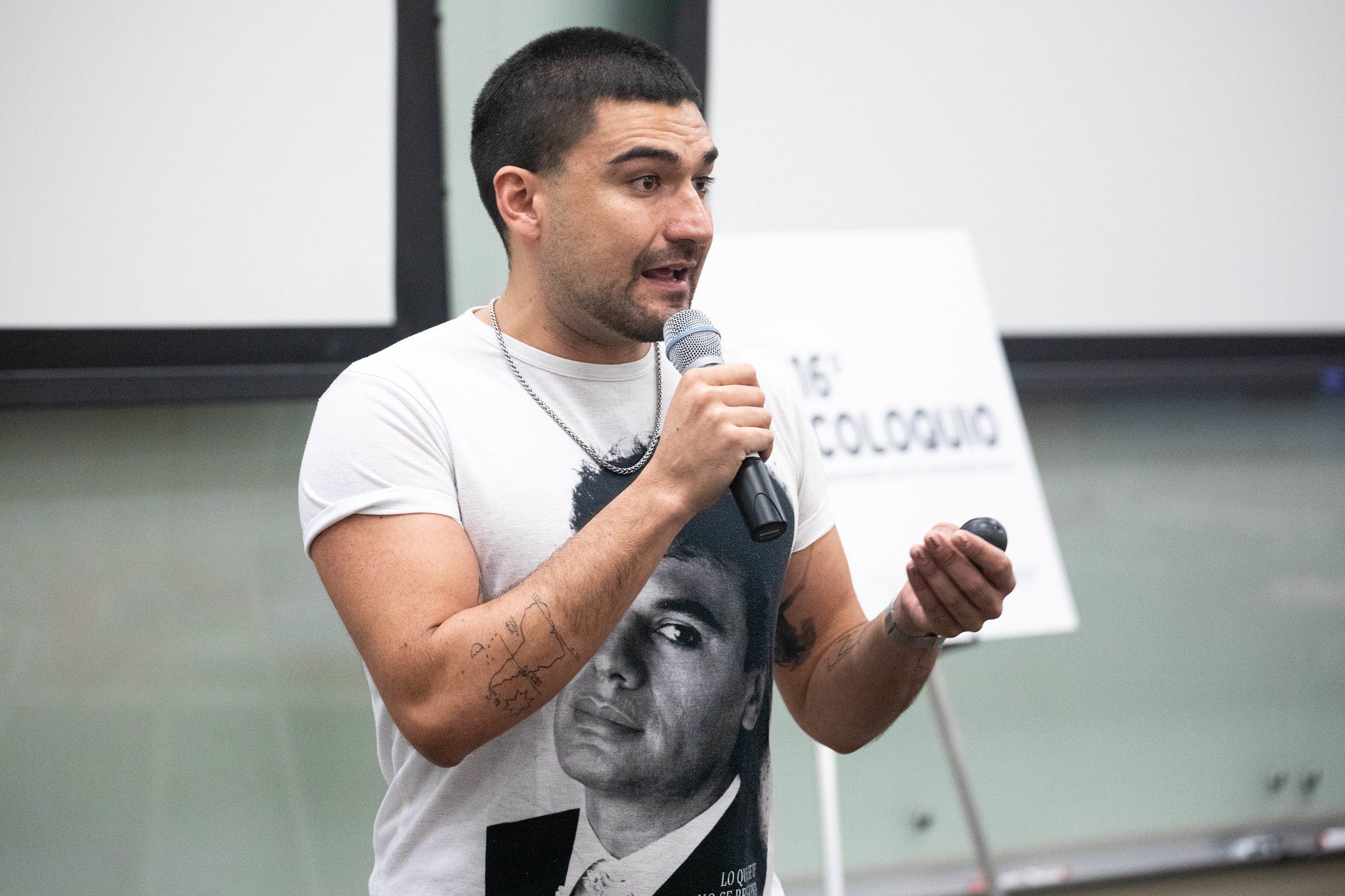
Documented Semanal [Documented Weekly] is one of the media initiatives aimed at Hispanic communities in the United States that have managed to work around WhatsApp’s restrictions to distribute content to large audiences. This project plus academic research behind other similar cases were presented at the 16th Ibero-American Colloquium on Digital Journalism.
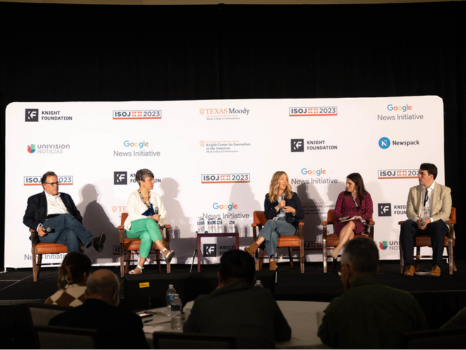
Exploring how newsrooms can engage financial sustainability efforts was discussed in a panel moderated by Jim Brady, Vice President of Journalism at the John S. and James L. Knight Foundation. The panel delved into how collaboration with non-profits and media organizations that support financial, technological and expertise optimizations can help journalistic entrepreneurs.